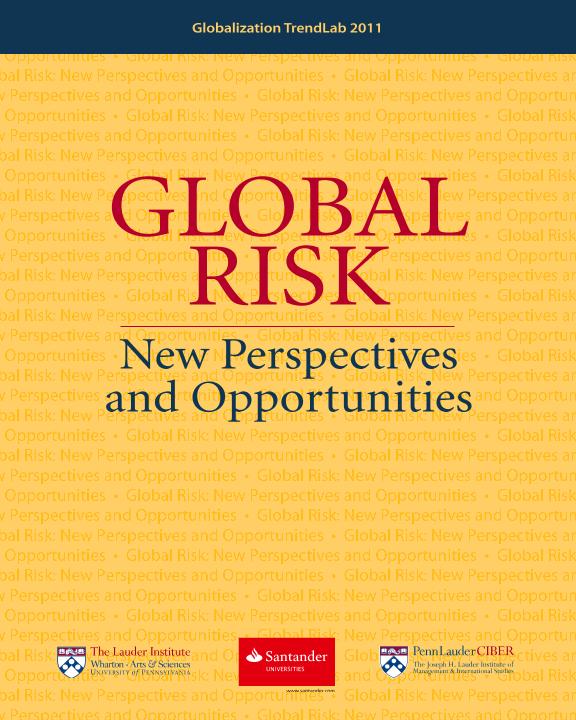Global risk : new perspectives and opportunities : Globalization TrendLab 2011

Contenido multimedia no disponible por derechos de autor o por acceso restringido. Contacte con la institución para más información.
| Tag | 1 | 2 | Value |
|---|---|---|---|
| LDR | 00000cam a22000004b 4500 | ||
| 001 | MAP20110053444 | ||
| 003 | MAP | ||
| 005 | 20110907102839.0 | ||
| 008 | 110907s2011 usa|||| ||| ||spa d | ||
| 040 | $aMAP$bspa$dMAP | ||
| 084 | $a7 | ||
| 245 | 0 | 0 | $aGlobal risk$b: new perspectives and opportunities : Globalization TrendLab 2011 |
| 260 | $aPennsylvania$bThe Trustees of the University of Pennsylvania$c2011 | ||
| 500 | $aBased on a conference organized by the Joseph H. Lauder Institute of Management & International Studies and The Penn Lauder Center for International Business Education and Research at the University of Pennsylvania, sponsored by Santander Universities, and distributed worlwide through the Knowledge@Wharton Network | ||
| 520 | $aThe global financial and economic crisis has heightened everyones awareness of systemic risk. Confidence in the ability of decision-makers, policymakers and institutions to handle such risks has been shattered. Psychology, a culture of destructive self-interest, and social processes have also been invoked as part of a complex set of conditions that led to the debacle. In turn, the crisis has accelerated some prevailing demographic, economic, and social trends, including population aging, political tensions, geopolitical instability and environmental degradation, as the focus of attention has unavoidably shifted towards short-term, immediate concerns. The crisis has placed the issue of systemic risk at the top of the global agenda, forcing analysts and policymakers to make a stark distinction between what is important and what is actually urgent. In this white paper we provide an overview of the causes, consequences, and potential solutions to the problem of risk, focusing on economic and financial aspects, while also paying attention to political, social and environmental risks associated with the crisis and its aftermath. The analysis represents the outcome of a collective, multi-disciplinary effort at understanding risk by a group of more than 30 scholars and policymakers from around the world who gathered in Philadelphia for a two-day conference | ||
| 650 | 1 | $0MAPA20080591182$aGerencia de riesgos | |
| 650 | 1 | $0MAPA20080588953$aAnálisis de riesgos | |
| 650 | 1 | $0MAPA20080575298$aCrisis económica | |
| 650 | 1 | $0MAPA20100016923$aRiesgo sistémico | |
| 650 | 1 | $0MAPA20080582418$aRiesgo financiero | |
| 650 | 1 | $0MAPA20080573683$aRiesgo político | |
| 650 | 1 | $0MAPA20080615284$aRiesgos medioambientales | |
| 650 | 1 | $0MAPA20080567224$aRiesgo social | |
| 650 | 1 | $0MAPA20080550233$aCongresos | |
| 710 | 2 | $0MAPA20080468286$aUniversity of Pennsylvania$bThe Wharton School | |
| 710 | 2 | $0MAPA20110023997$aThe Joseph H. Lauder Institute of Management & International Studies | |
| 710 | 2 | $0MAPA20110024000$aUniversity of Pennsylvania$bThe Penn Lauder Center for International Business Education and Research | |
| 710 | 2 | $0MAPA20110024017$aSantander Universidades |

